WHY YOU NEED POLLUTION COVERAGE
IF YOU THINK YOUR FARM LIABILITY OR BUSINESS LIABILITY COVERS POLLUTION – THINK AGAIN.
Almost every business deals with pollutants of some kind, especially when you consider that the term “pollutant” covers such a wide range of materials. Airborne particles, asbestos, fuel, lead and even simple household cleaners are just some of the common substances that can damage the environment and cause adverse health effects. And, because pollutants cause so much harm and are hard to remove, all businesses need to consider how to protect themselves from this common liability.
We hear all the time – “I don’t have a pollution exposure.” This couldn’t be further from the truth and the worst time to find out is when the DNR shows up. Here’s a few examples.
- Fuel truck collides with bridge, dumping fuel into local stream.
- Semi turning in field tips over and leaks diesel all over.
- Manure pump malfunctions releasing thousands of gallons of waste.
Will My General Liability or Farm Liability Policy Cover Pollution Claims?
Unfortunately, many business owners, farmers, and employers wrongly assume that their commercial general liability (CGL) or farm general liability (FGL) insurance policies include coverage for pollution-related claims. However, almost all of these policies include exclusions that catch businesses off guard. Pollution claims often include fees for things like cleanup efforts, legal defense, property damage and medical care, which means that even one unexpected claim can lead to a devastating financial blow.
Even though CGL policies can’t protect you from pollution claims, there are stand-alone policies and endorsements that can give you coverage. However, you need to consider how your operations, third-party exposures and other unique circumstances might determine the option that’s best for you. These type of endorsements can be added to to you CGL or FGL, but you must ask.
Why General Liability Policies Aren’t Enough
These policies cover a wide range of risks, but the massive costs associated with pollution claims led insurance carriers to create two common exclusions—generally referred to as absolute and total. Despite these seemingly restrictive names, these exclusions include an extremely small amount of pollution coverage for certain losses, such as fires or damage caused by a building’s vents. However, businesses can’t rely on these limited exceptions for protection.
Even if a loss seems to fall under one of the exceptions to an absolute or total CGL exclusion, insurers can use the broad definition of the term “pollution” to deny claims. Court rulings involving the exclusion also vary widely, making coverage under a CGL policy even less reliable.
The Options for Reliable Pollution Coverage
Workplaces with even small pollution risk exposures need to consider how additional insurance options can help protect them. Here are some key details on four types of pollution coverage:
- Contractors pollution liability: Contractors often work on projects that can lead to short- or long-term pollution, such as water runoff that affects a local water supply or a loose window seal that causes mold to form. These policies protect contractors from losses caused by their regular operations or those performed by subcontractors.
- Products pollution liability: This type of coverage can protect a business from products that could fail and lead to pollution, such as air filters and fuel containers. Even if your business doesn’t manufacture these products, these policies can help protect you if the original manufacturer doesn’t have pollution coverage, or if your business’s distribution or maintenance of the product contributed to a loss.
- Premises pollution liability: Most businesses have to manage environmental risks at their workplaces, even from something as simple as normal trash disposal. This coverage—also referred to as site pollution liability—can be customized to cover entire buildings or specific risks, such as outdoor fuel tanks or medical equipment.
- Transportation pollution liability: While other types of pollution insurance focus on a specific location, businesses are still at risk whenever potential contaminants are in transit. This type of coverage can protect businesses if pollutants are released during vehicle collisions, mishandled unloading procedures and more.
If you want to find out if you are protected, reach out. Fill out your information and a member of the Thams Agency Team will be in touch.
Contact Me
Thams Agency is a 3rd generation family small business. We have been protecting what matters most since 1934.
